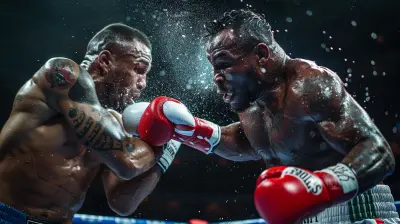The Thin Line Between Supplements and Doping
17 November 2025
Let’s face it, in the world of sports, there’s an elephant in the locker room—and it’s got a protein shake in one hand and a syringe in the other. Athletes are constantly chasing that edge, looking to lift heavier, run faster, recover quicker, and compete harder. But where exactly is the line between legal supplements and illegal doping? Is your favorite athlete just drinking a smoothie loaded with creatine or playing a high-stakes game with banned substances?
That’s exactly what we’re going to unpack in this no-fluff, high-energy, and slightly cheeky breakdown of the thin line between supplements and doping. So grab your shaker bottle and let’s dive in.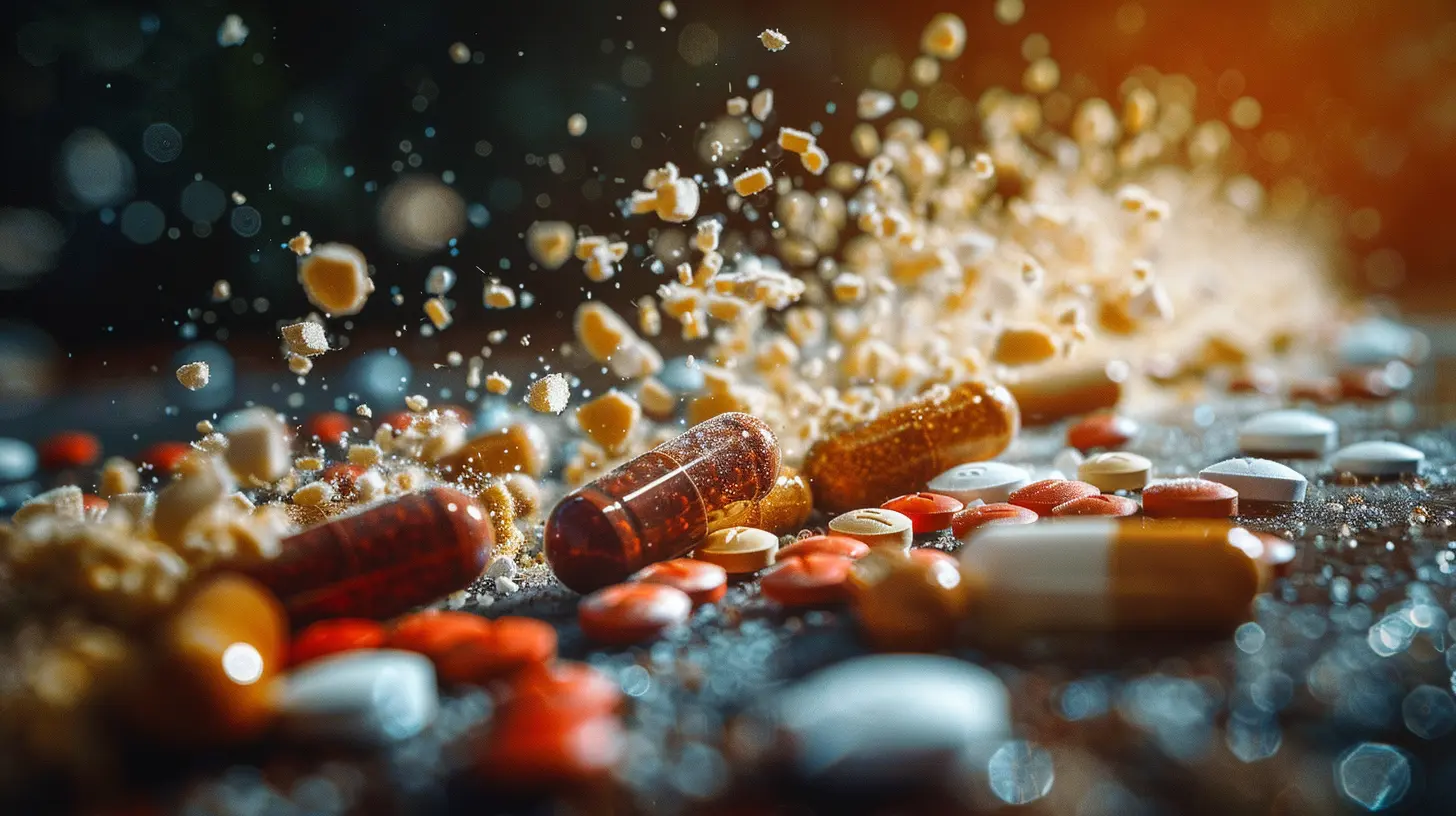
A Quick Refresher: Supplements vs Doping
Before we stir the pot too much, let’s get our terms straight.Supplements are legal substances you can buy almost anywhere—your local health food store, gym, or even gas station vending machines (no judgment). They include vitamins, protein powders, creatine, BCAAs, and even pre-workout formulas that make your heart race like you just saw your ex with someone new.
Doping, on the other hand, involves the use of banned performance-enhancing drugs (PEDs) to gain an unfair advantage. Think anabolic steroids, EPO (yes, the Lance Armstrong favorite), human growth hormone (HGH), and other substances outlawed by organizations like WADA (World Anti-Doping Agency).
So far so clear, right? But here’s where it gets messy.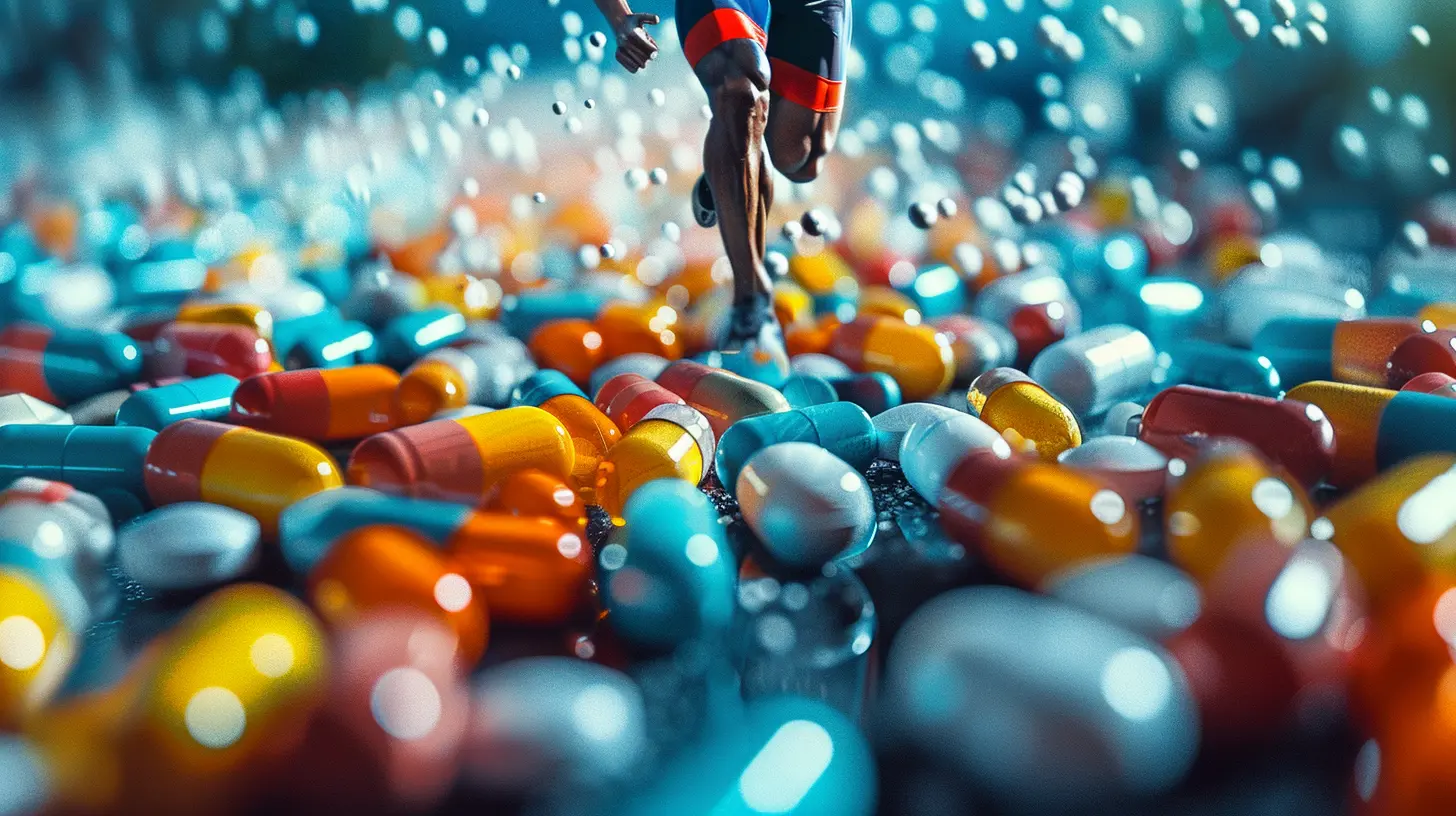
The Grey Zone: Where It All Gets Complicated
So, you're at your local supplement store, staring at a wall of tubs with names like "Beast Mode Mass Builder 9000" and "Nuclear Pre-Pump." You're wondering, “Is this stuff safe? Legal? Or am I about to get accidentally banned from competitive hopscotch?”The problem? Some supplements flirt with the rules. There are certain substances that may be legal in some places, banned in others, and grey-zoned by sports federations. It’s like trying to play Monopoly when everyone’s got their own house rules.
And some of these sketchy supplements? They’re marketed with phrases like:
- “Clinically tested for extreme performance!”
- “Results in just 7 days!”
- “Used by pros!” (Um… which pros?)
These taglines are often smoke and mirrors, and they can cover up ingredients that dance dangerously close to banned substances.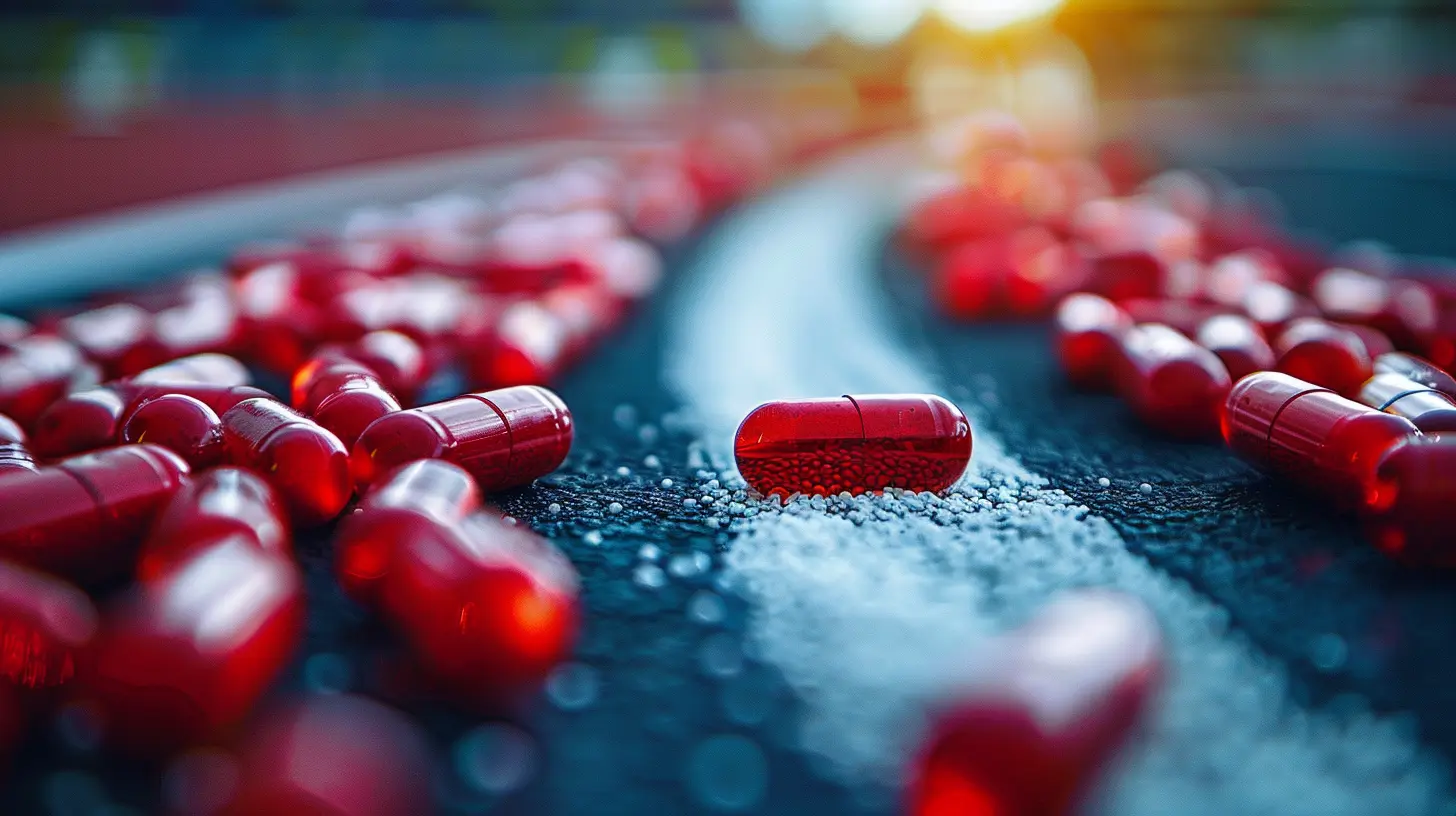
Hidden Dangers of “Legal” Supplements
Here’s where things take a scary turn. Even “legal” supplements can unknowingly contain banned substances. In fact, several studies show that up to 20% of over-the-counter supplements may be contaminated with something not listed on the label.Yes, you heard that right. Your innocent-looking pre-workout could be spiked with something on WADA’s hit list—and you wouldn’t even know it until it’s too late.
Reasons for Contamination:
- Poor manufacturing standards (hello, cross-contamination)- Mislabeling or lack of full disclosure
- Intentional spiking to make the product seem more effective
So even when athletes think they’re playing by the rules, they might be unknowingly stepping onto the doping tightrope.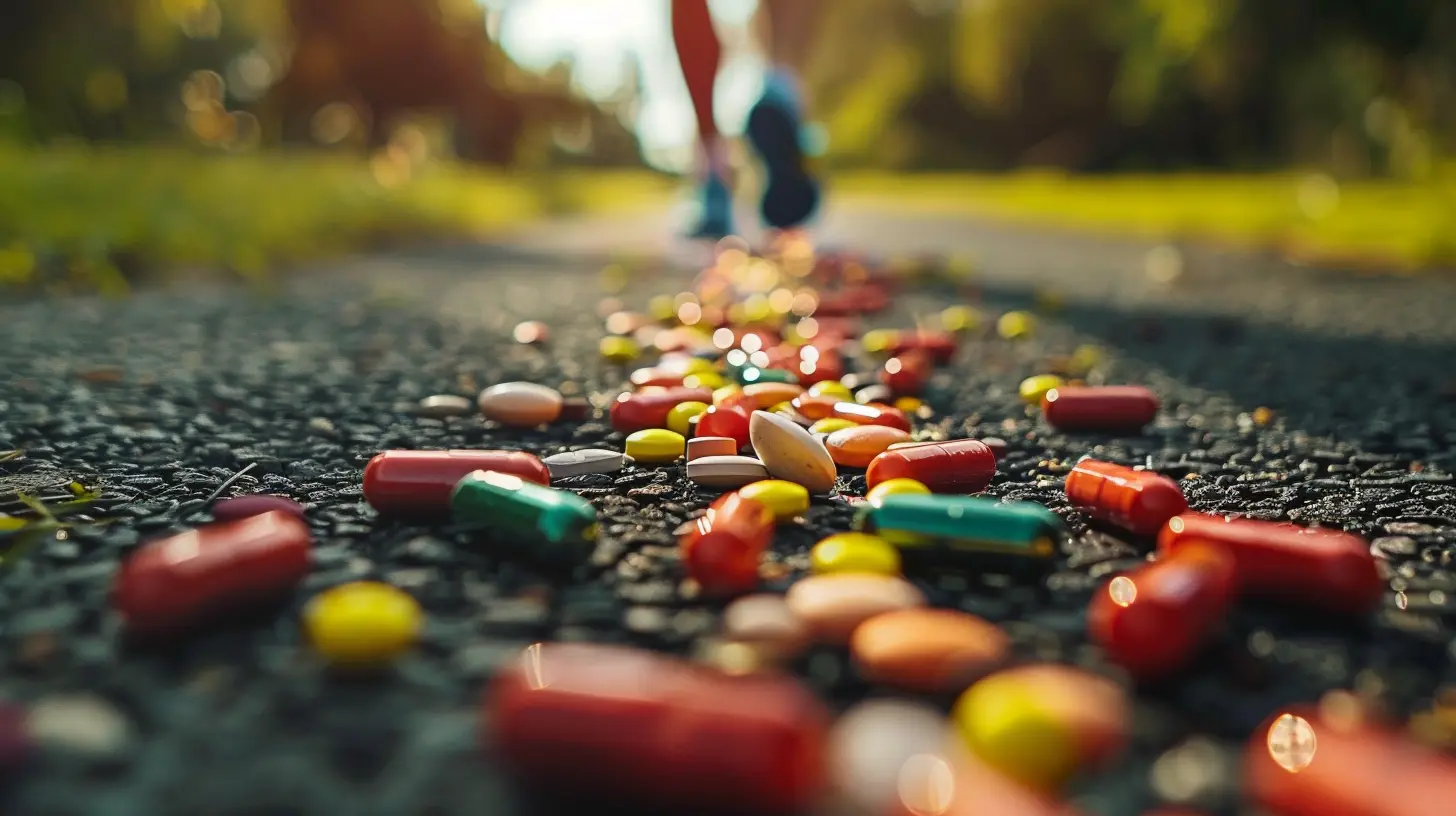
Intent vs Accident: Does It Even Matter?
Here comes the philosophical part—strap in.In sports, intent doesn’t always protect you. If banned substances are found in your system, you’re responsible, no matter how it got there. That’s called strict liability.
Let’s say you’re an athlete who took a legal-looking protein shake that was spiked with a banned steroid. You had no idea. But during a drug test, it pops up—and boom—you’re suspended, your medals are stripped, and your name gets dragged through the mud. Sounds unfair, right? Unfortunately, rules are rules.
And that’s what makes the line thin. One minute you’re fueling up for greatness, the next you’re giving awkward interviews about how you “didn’t know what was in it.”
Natural vs Synthetic: The Slippery Slope
Okay, another thing to consider: Just because something is “natural” doesn’t mean it’s allowed. And just because something is “synthetic” doesn’t mean it’s automatically doping.Let’s break it down:
- Caffeine: Natural, and generally allowed. But too much? That can raise flags.
- Creatine: Naturally produced by the body, and usually permitted.
- Testosterone boosters: Some are natural, but many cross into banned territory, especially if they artificially spike levels.
It’s a slippery slope. Supplements often walk the line like a tightrope walker at a circus—with a blindfold on.
Sports Org Rules: Trust, But Verify
Just because GNC or Amazon sells it doesn’t mean your sports federation will approve it. Every organization (NBA, NFL, UFC, Olympics, etc.) has its own list of approved substances, and they’re updated more frequently than your favorite playlist.So, if you’re an athlete (or a weekend warrior who might one day compete), you’ve gotta be your own advocate. Check the labels. Cross-reference the ingredients. Use third-party tested products. Or, as Grandpa used to say, “If you can’t pronounce it, don’t eat it.”
Cases That Blurred the Line
Let’s peek into history for a few plot twists.1. Maria Sharapova (Tennis)
She was using meldonium, a heart medication legal in some countries, but banned by WADA in 2016. She claimed she didn’t know it was on the list. Result? Two-year suspension (reduced to 15 months).2. Tyson Gay (Athletics)
He used what he believed was a legal supplement—turned out it wasn’t. He cooperated with investigations, but still had to return his Olympic medal.3. Jon Jones (UFC)
He had multiple issues with substances, including testing positive from what was claimed to be a tainted supplement. It’s still debated whether it was intentional or accidental.These examples show how athletes aren’t always looking to cheat—but mistakes still cost them.
Supplements That Are Usually Considered Safe
Let’s lighten things up with some good news. There are plenty of supplements that, when used responsibly, pose minimal risk and usually raise no red doping flags.Here are some:
- Whey protein
- Creatine monohydrate
- Vitamin D/C/B-complex
- Electrolytes
- Fish oil (Omega-3)
- Multivitamins
- Branched-chain amino acids (BCAAs)
Of course, always check for third-party testing certifications like NSF Certified for Sport, Informed-Choice, or USP Verified.
Where Ethics Come Into Play
Ah yes, the million-dollar question: Just because you can take something, should you?At what point does chasing physical excellence turn into something... less noble? The conversation around supplements and doping isn’t just about legality—it’s about ethics. That’s where things get really personal.
Where do you draw the line? Is it when your performance stops being your own and starts being a product of powder, pills, and injections?
It’s like the difference between grinding for hours to master a video game and just buying the cheat codes online. Sure, you get to the top faster—but was it really you?
How to Stay Clean (Without Going Crazy)
If you’re an aspiring athlete or just someone who wants to stay on the safe path, here are a few quick tips:1. Do Your Research: Use WADA’s resources to check what’s banned.
2. Stick to Reputable Brands: Not all supplement companies are created equal.
3. Consult a Sports Nutritionist: They’ll know what’s safe and what’s sketchy.
4. Avoid Magic Fixes: If it promises overnight success, it’s probably too good to be true.
5. Test Yourself: Some athletes voluntarily test their supplements or even their own systems regularly.
Social Pressure & Sponsorships: Added Fuel to the Fire
Let’s not ignore the big fat dollar signs floating around. Sponsored athletes are under pressure to perform. The higher the stakes, the more tempting that grey area becomes.Your fave athlete might be smiling in a commercial holding a “natural” supplement, but behind the curtain? Who knows what else is going on. The business of sports performance is BIG, and the lines get blurrier every time there’s a new “miracle” on the market.
So… Where’s That Line Again?
The truth? The line between supplements and doping isn’t just thin. It’s invisible, shifting, and sometimes marked in invisible ink.You can use supplements responsibly and legally—but even then, it demands diligence, knowledge, and a little bit of paranoia.
But the good news? Staying on the right side of the line isn’t impossible. It might not be as flashy as hitting a gym PR on a mystery powder, but in the long run, honesty, hard work, and old-fashioned sweat still win championships.
Final Thoughts
Whether you're a pro athlete, a weekend warrior, or just someone looking to improve their performance, you're walking a line—sometimes it’s as thin as a protein powder scoop. The key is awareness. Knowing what you’re putting in your body, being honest with yourself, and remembering that real results take time.Cheating the system might get you faster results—but at what cost? Your legacy? Your health? Your peace of mind?
In sports and in life, integrity lasts longer than a performance boost.
all images in this post were generated using AI tools
Category:
DopingAuthor:

Onyx Frye
Discussion
rate this article
1 comments
Dana O'Brien
Supplements or doping? The distinction is blurry, but let’s be real: athletes are in a race against time and competition, often pushing boundaries. It’s time for a transparent conversation about what’s fair and what’s foul. If we don’t evolve our definitions, we risk losing the integrity of sports altogether.
November 19, 2025 at 5:47 AM

Onyx Frye
I completely agree. A transparent dialogue is essential to navigate the complexities of supplements and doping, ensuring we uphold the integrity of sports while addressing the evolving landscape of athletic performance.
